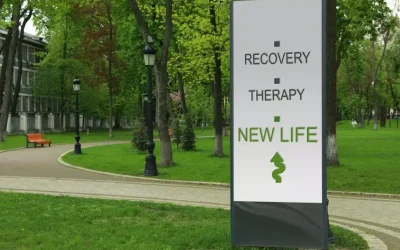Content
A drinking relapse doesn’t mean you’re a failure or that you’ll never be able to reach your goal. Each drinking relapse is an opportunity to learn and recommit to sobriety, so you’ll be less likely to relapse in the future. Build a sober social network – If your previous social life revolved around https://ecosoberhouse.com/ alcohol, you may need to make some new connections. It’s important to have sober friends who will support your recovery. Try taking a class, joining a church or a civic group, volunteering, or attending events in your community. Treatment should address more than just your alcohol abuse.
People often abuse alcohol to ease the symptoms of an undiagnosed mental health problem, such as depression or anxiety. As you seek help for alcohol addiction, it’s also important to get treatment for any other psychological issues you’re experiencing. Your best chance of recovery is by getting combined mental health and addiction treatment from the same treatment provider or team. There are countless aftercare programs available across the nation.
Is moderate drinking after AA a possibility?
If you keep these thoughts to yourself, you are in danger of physical relapse. You can get back on track more easily during this stage of relapse. When you are aware of the different stages of relapse, you can get out ahead of a full-blown relapse. You might be able to catch your relapse in the early stages. Knowing what a relapse is will help you understand when you or a loved one are in the middle of one.
Alcoholism is defined as a chronic condition that is the most severe version of alcohol abuse. When someone has an alcohol use disorder, they can’t control their drinking and continue to drink even with negative side effects. Alcohol use disorder can be classified based on severity, including mild, moderate, and severe.
Reasons You May Feel Unnecessary Guilt for Using Drugs
Hello Sunday Morning’s Daybreak program is a large online alcohol support community, accessed through a mobile and desktop app. It’s designed for moderate drinkers who want to cut back or quit. Early research suggests it’s effective in reducing drinking, as well as improving psychological well-being going back to drinking after being sober and quality of life. In the pancreas and heart, alcohol is minimally oxidized. Instead, most of it is esterified with fatty acids, forming FAEE. These molecules bind to mitochondria and disrupt the generation of energy that is normally reserved for pancreatic secretion or myocardial contraction.
For James, who is in his mid-50s, what finally convinced him to ditch the booze was waking up hungover after a workplace Christmas party. He had been a social drinker, and also drank at home three or four nights a week. “It was beginning to affect my health – just getting out of bed was harder,” he says. The Life Process Program is a treatment program developed by renowned addiction expert Dr. Stanton Peele to provide an alternative option to Alcoholics Anonymous (AA). Dr Peele also answers a number of other 12-step questions in the Ask Stanton section of our website.
What Happens After Alcohol Rehab?
If you struggle with drinking or struggling to maintain your recovery from alcohol addiction, The Recovery Village Drug and Alcohol Rehab can help. Contact our alcohol addiction recovery experts today to learn more. Even after being sober for years, the potential for an alcohol relapse is always possible. People who relapse may feel guilt, shame and hopelessness. However, just because a relapse occurs doesn’t mean someone has failed recovery.
- Treatment providers can connect you with programs that provide the tools to help you get and stay sober.
- The more specific and detailed your goals, the greater your chances of staying alcohol-free.
- The person with the drinking problem needs to take responsibility for their actions.
- John C. Umhau, MD, MPH, CPE is board-certified in addiction medicine and preventative medicine.
- I avoided self-help groups where they talked about their gratitude.
Experts think this occurs because the neural circuits involved in stress and mood are the same circuits involved in the brain’s reward system. For this reason, stress can trigger the same brain circuits that were triggered when you sought alcohol in the past. This means stress can lead to cravings, which can lead to a relapse. Different types of relapses exist, including short-term slips, lapses and longer-term relapses. John C. Umhau, MD, MPH, CPE is board-certified in addiction medicine and preventative medicine.
“If you really want to have a glass of wine, have a glass of wine,” Ms. Warrington said. If you are going to drink, make it a conscious, deliberate choice. Think about whether alcohol will add value to your experience — what difference will drinking make to your time at a party or your night at the bar? And if you’re drinking to try to enjoy an event where you’re not having a good time, consider just going home. Dr. Stoller advises thinking through what you like and don’t like about drinking.

Express your concerns in a caring way and encourage your friend or family member to get help. Try to remain neutral and don’t argue, lecture, accuse, or threaten. Treatment doesn’t have to be limited to doctors and psychologists. Many clergy members, social workers, and counselors also offer addiction treatment services. Once you’ve made the decision to change, the next step is establishing clear drinking goals.
Have a Sober Support System
She lives in the small places beneath my conscious mind. Late summer in 2013, I was sitting in a self-help group. This one was surrounded by a very fine, old graveyard, like a metaphor, with many famous intellectuals in fabulous tombs; we sat calmly with the dead, as if we belonged there.
- I could no longer blame circumstances or others; I would have to do something about it myself.
- For this reason, stress can trigger the same brain circuits that were triggered when you sought alcohol in the past.
- Caffeine is a stimulant that can make you feel more awake, even when you’re hungover.
- So it’s worth chatting to your doctor if you need a little help getting started.


